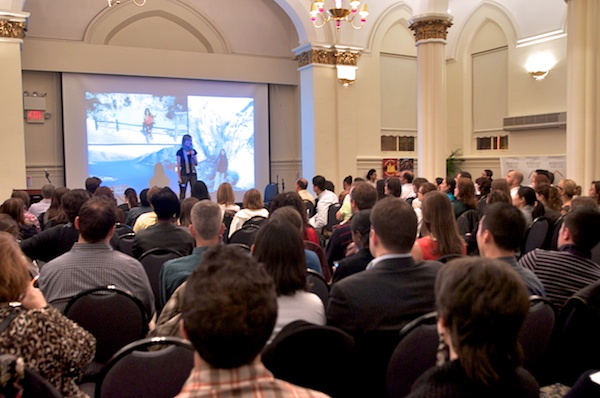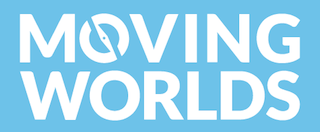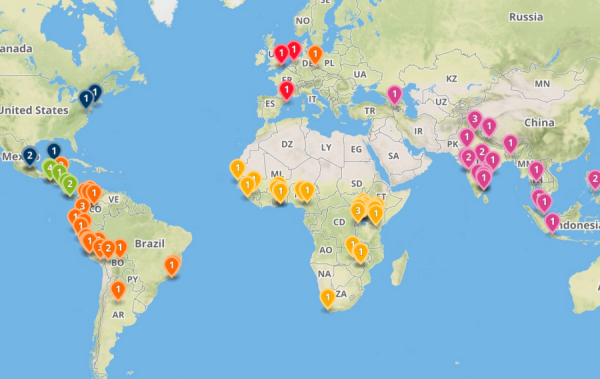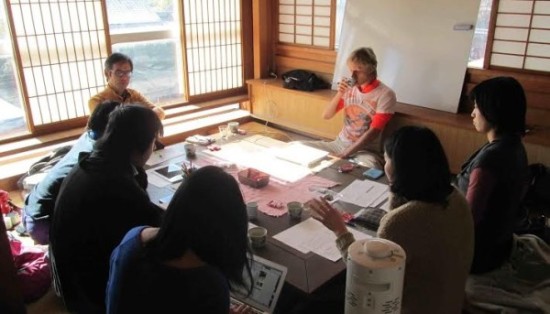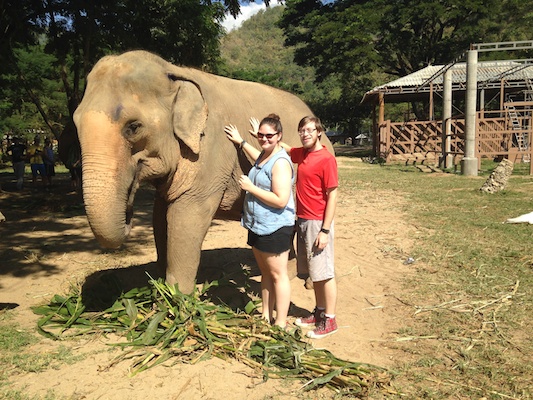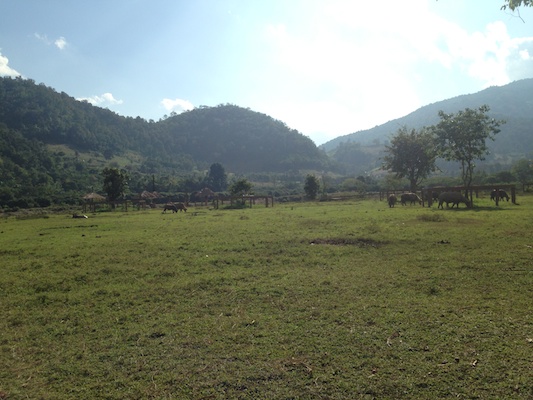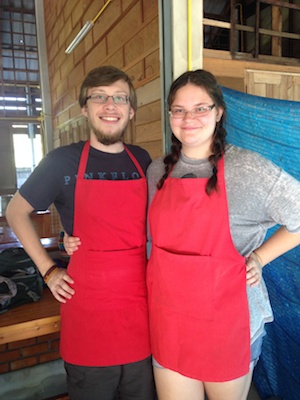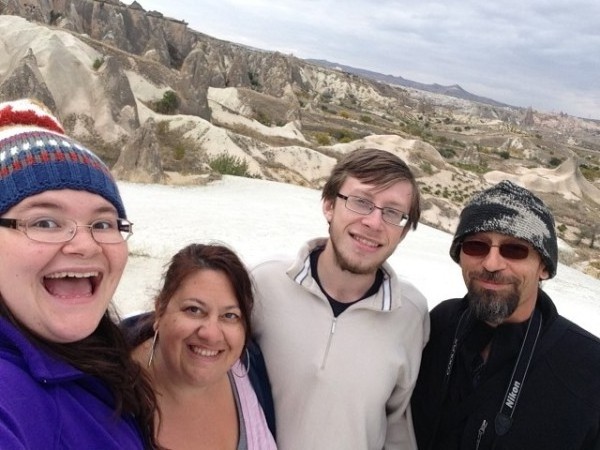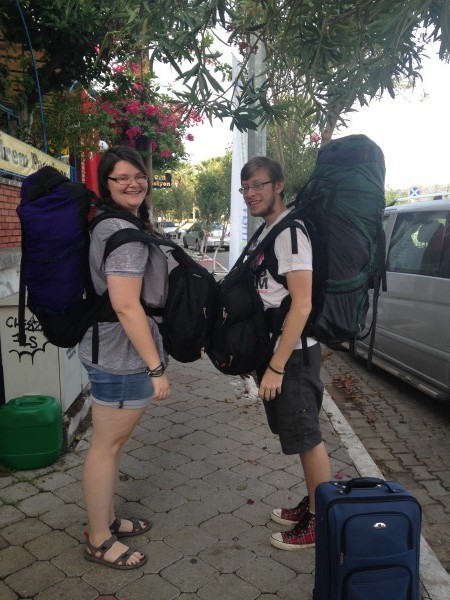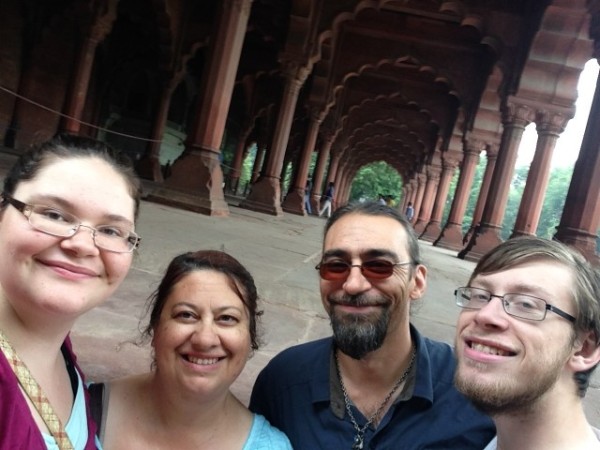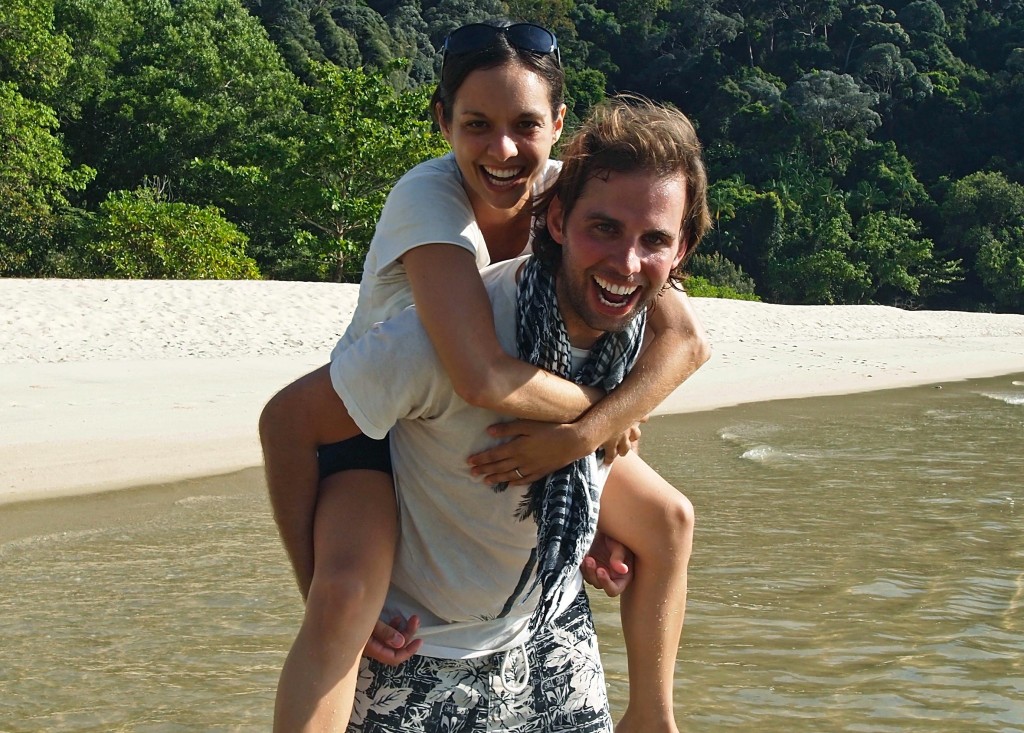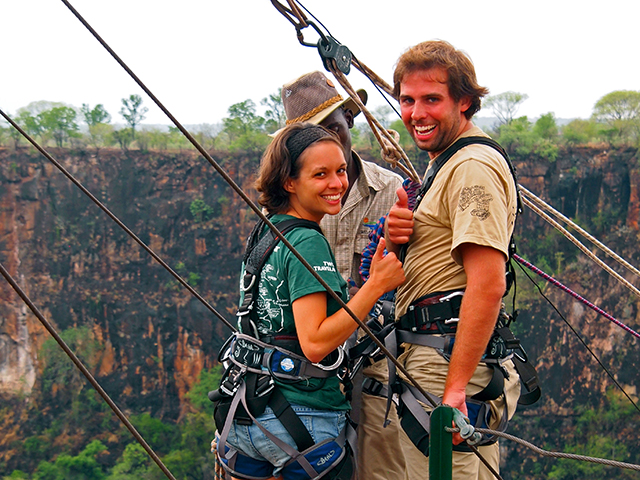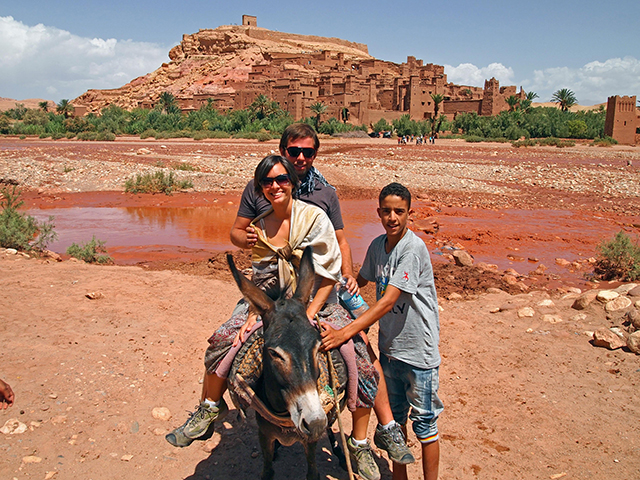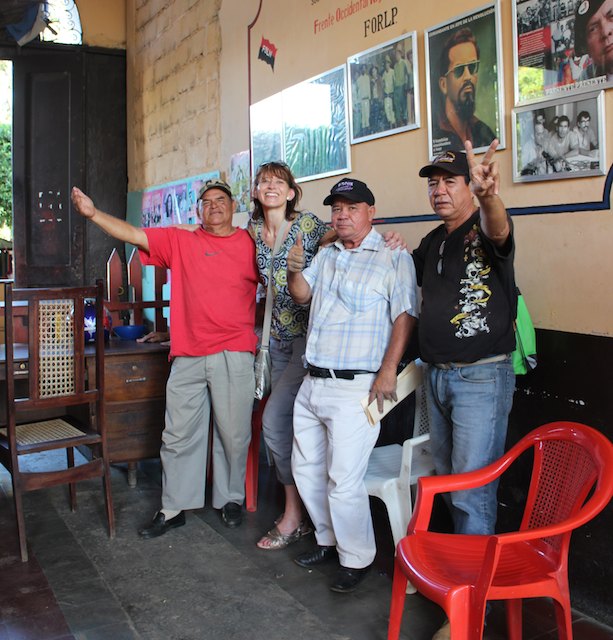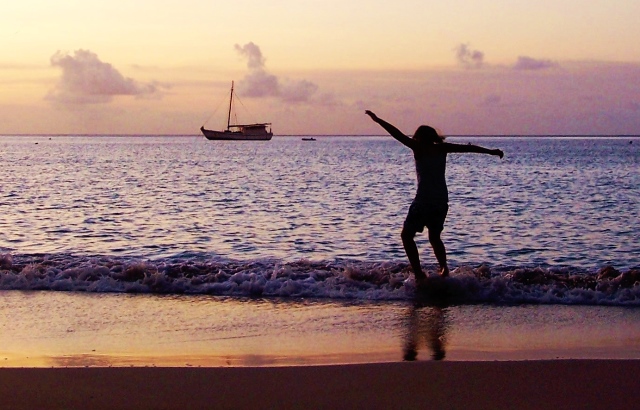I have been connected to Meet Plan Go since what I think were its earliest days. And by that I do not mean that I was one of the founders. Somehow, someway, in one of countless travel-related Internet searches, I read about it. I vaguely remember thinking, “You can do that?” and something got sparked in me. I got on the MPG web site, then called Briefcase to Backpack, and eventually found my way to what I think was the first big MPG event in New York City in the fall of 2010.
Travel in My Youth
I have been drawn to travel and exploration my entire life. As a young girl, our family moved to Paris for six months. I lived in Glasgow, Scotland, for a year of college. I had traveled in parts of Europe and Asia and made a trip to southern Africa. I had explored many parts of the U.S. and Canada. My mind often swam in what or where the next adventure would be. But other than the many moves I made in the U.S. when I was in my 20s, my explorations were usually at the most two and a half week vacations from work. I had never traveled for much longer than that or seriously considered it. It soon became something that floated often in my mind.
As an Adult I took Small Steps
After attending the first big MPG event, I continued to go to smaller meet-up groups. I listened to people talk about budgeting, planning, volunteering and their favorite gear. On my own, I found travel blogs I liked and read them regularly. I was inspired and always curious to learn more, but I was never sure I would do it myself. Somewhere along the way, though, I started taking small actions. One Friday after work, I went to my bank and set up a separate savings account to automatically deduct a certain amount from my primary account on the first of each month. I figured it could never hurt to have savings. I researched the places I was interested in going.
The two areas that came up the most were Africa and the Middle East. At one MPG event they had us write on our name tags the places we most wanted to travel. I think I was the only person who had written down Africa and the Middle East.
So I researched. And considered. And talked on and on with my friends about all the reasons why I should leave New York and my job. Yet, I did not go. Why? Many reasons.
Some of them were practical–I needed to save more money. And many of them simply came down to fear. As much as my mind was awash in travel dreams, it was also awash in constant doubt.
In particular, for me, I worried about how I would handle being alone on the road. Would I be too lonely? I had talked about wanting to leave my job and New York City for a long time, but was I giving both enough of a chance, or would I simply find that I was not happy on the road either?
While I listened at MPG gatherings to others’ stories of going to an MPG event and quitting their job the next day, I worried these questions inside out. Occasionally, well-meaning fellow travelers would tell me to “just do it,” but every time I thought about it I would get this tick under my eye that happens when I am very tired or stressed. While some may get their own version of the “tick” and need to move ahead anyway, I know for me it is a sign that I need to wait. It was not time for me yet.
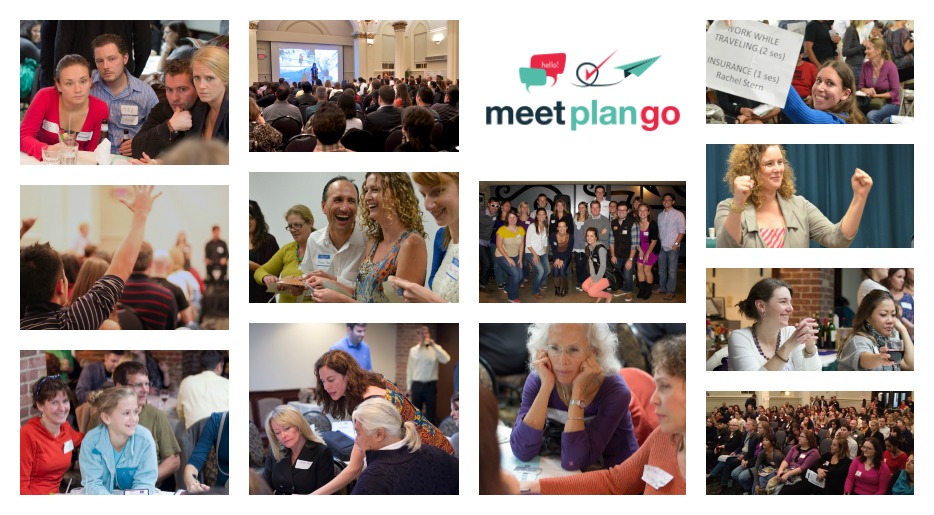
It Took 5 Years to Book a Ticket

Namibia has the most beautiful skies of any place I have been. This photo was taken on the dunes in Sossusvlei, Namibia, one of the highlights of my time there.
It was about five years after first learning about MPG that I finally booked my ticket to leave. Five years of saving (I have needed every penny!). Five years of researching. Five years of considering. You often hear that there is no perfect time to go, so you just need to do it. There is truth in that. I wonder sometimes if I should have gone sooner, that maybe I made things harder on myself by waiting. I cannot say for sure, but I needed to get to a place where I felt in my gut that it was time.
In the meantime, I made the most of those years, and the experiences I had helped me to grow and feel more confident about the idea of traveling on my own. I had special time with my father while he was sick and gave myself time to go through the initial grief of losing him–the love of my life. I cared for my sick cat and eventually said goodbye to her. I considered other work possibilities within my company. I moved into Manhattan, something I had wanted to experience before I left New York City. I went through a yoga teacher training process for nine months. I developed daily practices that I use on the road to help anchor me no matter where I am in the world. Meanwhile, my work and other parts of my life in New York continued to feel stagnant, and it got clearer that those pieces were not going to change “someday.”
When I finally booked a one-way flight from Washington, D.C. to Windhoek, Namibia, I cried. Some of the tears were sadness–I would miss my family–but most of them were something else. I had done it! After all this time. And I had done it for myself. I had already told my boss that I would be leaving. I gave six months’ notice, knowing I needed to commit to the plan and also wanting to be able to talk freely about it at work. That helped me be able to leave on excellent terms.
Crossing Over to Career Breaker
I went to the annual MPG event that fall. This time, when they asked who was going to take a career break to travel, I was one of the people who raised my hand. It was exciting to finally know inside myself that it was time. There was no tick under my eye. I was confident and ready. I left the event that day on a high. In listening to others talk about their experiences, I felt like I had seen the world, and it felt limitless.
I went to one last MPG meet-up shortly before I left. People asked me about my plans, hugged me and said they wanted to hear about my travels as I went along. It was a wonderful feeling to have so much support. And it was an interesting feeling–suddenly I was one of “them.” I had listened to people talk about their career breaks and always saw them as different from me. Somehow, I thought they were more able to do the things I wanted to do. I realized that night that the only difference between me and them was that they had done it. I had not done it yet, but I was on the verge, and suddenly “they” included me.
Traveling with Confidence

Iran is a fascinating and rich culture that I still want to explore more. As anyone will tell you, the warm and welcoming people are a huge part of what makes it so special.
What I see now as I write this is that my mind often has to question everything. Doubt seems to be a constant companion, always alerting me to every possibility. I have to laugh at how earnest and serious it is. Funnily enough, the doubts often do not extend to the places I choose to travel. And one of the things I love about travel is the confidence I gain as I move through the world. I have been on the road more than one year now. I spent the first 4-1/2 months traveling solo through various countries in Africa, followed by six weeks in France and five months in the Middle East. When people ask whether I have had any problems, I love being able to tell them about all the help I have gotten along the way and to let people know that the world is a friendly place.
I have good days and bad days on the road, times where I feel light and times where I feel lonely or question my direction. I sometimes need to recalibrate to find ways of travel that work best for my body and my spirit. Still, this huge life change has been the right move for me. I love exploring new places. I love being around people from other cultures. I have gotten more comfortable with talking to strangers, as well as more comfortable in my own skin. I am sharing more of myself with others and sharing more of what I have with others–talents and stories. I continue to grow in listening to myself and what is best for me. I am using the travel as a vehicle for creative pursuits I could not seem to make time for before I left. And I see more and more how much of travel for me is about the people and having a sensory experience of life. I connect both to people and to that sensory experience when I move slowly. It seems to be my rhythm.
About Bridget DeMouy
 Bridget DeMouy left her corporate job and home in New York City more than one year ago to explore the world and its people. She loves trekking enough to carry her heavy boots with her wherever she goes and is deeply loyal to any restaurant with friendly people and tasty, flavorful food. You can follow her travel adventures on her blog called Out of This World or on Instagram at @bdemouy.
Bridget DeMouy left her corporate job and home in New York City more than one year ago to explore the world and its people. She loves trekking enough to carry her heavy boots with her wherever she goes and is deeply loyal to any restaurant with friendly people and tasty, flavorful food. You can follow her travel adventures on her blog called Out of This World or on Instagram at @bdemouy.


